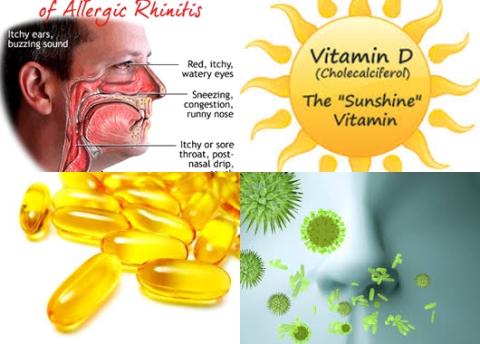
Objectives:
The role of vitamin D status in the etiology of allergic diseases is uncertain. Therefore, this meta-analysis (systematic review) has been conducted.
Study design:
This review article included a total of 21 observational studies.
Results and conclusions:
The investigators found children with serum 25(OH)D ≥75 nmol/L had significantly reduced odds of aeroallergen sensitization, but neither vitamin D intake during pregnancy nor vitamin D supplementation in infancy were associated with risk of allergic rhinitis.
The investigators found compared to those with serum 25(OH)D 50 nmol/L, individuals with serum 25(OH)D ≥75 nmol/L had a significant decreased risk of 29% [OR = 0.71, 95% CI = 0.56-0.89, p = 0.04] for allergic rhinitis.
However, this association was mainly observed in adult men; prevalence of allergic rhinitis (AR) was lower in men with serum 25(OH)D ≥75 nmol/L compared to men with serum 25(OH)D 50 nmol/L, while this association was not observed in women.
The investigators concluded serum 25(OH)D ≥75 nmol/L reduced odds of aeroallergen sensitization in children and risk of allergic rhinitis in men.
Original title:
Vitamin D status, aeroallergen sensitization, and allergic rhinitis: A systematic review and meta-analysis by Aryan Z, Rezaei N and Camargo CA Jr.
Link:
https://www.ncbi.nlm.nih.gov/pubmed/28102718
Additional information of El Mondo:
Find here more information/studies about vitamin D and chronic diseases.